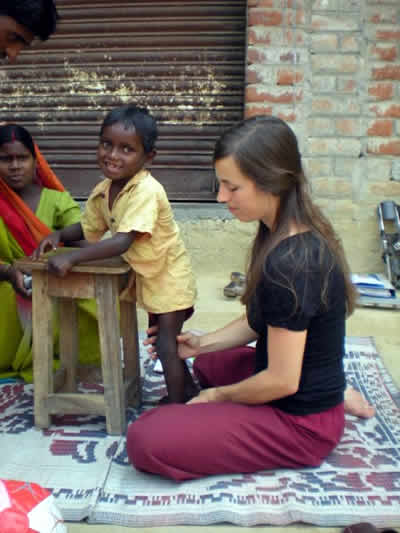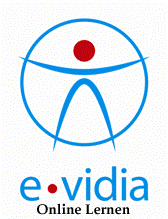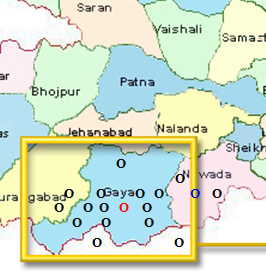Inge Bühlmann - intiba@hotmail.com Switzerland
Physiotherapist
India-mania, what a wonderful, mad place: chaotically-structured, peaceful and rough, prosperously-poor, stunningly-ugly and nastily-charming. Controversial as it is, the only suitable adjective i can really think of is "crazy". A firework of sensations quenching all my senses. It is nearly one year ago now, since i left the chaos, though my memories of this place are still incredibly vivid and clear. I can still live from them now! Before i set off for my journey, i had not the slightest inkling what to expect, nor did i feel prepared for the adventure. But this wasn`t a reason to stop me, it was even more a reason to pour myself head over heels into it. As soon as i got there, it revealed to me quickly, that one can not be prepeared for something like it. There is absolutely nothing that doesn`t exist. Unpredictable as it is, one has to be prepeared for everything. Full of surprises, every day turned out to be a new adventure of its own. India was somehow sticking a mirror into my face, reflecting reality as it is. Challenging me intensely, pushing me towards my edges, testing my patience and as a result, bringing out the good parts of me and sometimes also the not so good ones.
After two months of roaming around and exploring the indian subcontinent i had overcome the cultureshock and gradually started to feel comfortable within the chaos. Suddenly i felt ready for another challenge. I decided to set sail for Bihar and finally lowered my anchor in Bodhgaya. From what i had read about that state and from what i was told by other travellers, i was well prepared to enter the deepest depths of India. But what i discovered was surprising. Besides its roughness (i am speaking of violence, bloodyriots between the castes, illiteracy, poverty, domestic violence, corruption and so on) Bodhgaya also revealed a tender face towards me. I immediately felt overwhelmed and drawn in by its special atmosphere. I quickly understood why they call it "the cradle of Buddhism". Though strictly speaking, it wasn`t the religious significance of the place which had attracted me, but the MVT(=Muskan Viklang Trust). I had first heard of the MVT by pure accident on the internet while i was still in my last year of the physio-school in Basel (Switzerland). The MVT instantly sounded most promising to me. After exchanging a few emails with Heiner Janssen (the father and founder of the project) he had definitely managed to put a flea into my ear and i couldn`t let go of the idea to go there and get involved. Because i had just only finished my physio-degree, i was slightly worried at first, of not beeing able to face the challenge and most of all, of not beeing able to meet the expectations. Though as soon as i got involved, i realized, that working experience of course may be beneficial, but that it is not necesseraly vital. I was received with open arms by the MVT-staff and i understood, that one can have a positive impact just simply by beeing there. Beeing able to work together with local people was so precious, as it was giving me a totally different insight into the indian culture. I was able to become part of it, whilst as a tourist, remaining distanced, an observer. The work itself was extremely interesting, but also strenuous and challenging in many ways.
I was so grateful to have three other volunteers there with me. Max, Skadi and Dana (three Physios of my age from Thüringen and Berlin) arrived about a month before me. They were three incredibly funny and friendly spirits with good intentions and big hearts. They were already familiar with the work by the time i got there and had already started to realize a couple of their own ideas. They basically showed me the work and dragged me along with them. I really appreciated their company and it was truly wonderful to have them around. Luckily we had more or less similar attitudes and ideas and managed to push forward together as a team. Working together with the indian employees turned out to be a slightly tougher task. Their motivation towards the work varied a lot and was in general pretty displeasing and for most of us hard to understand. We soon realized that we have to be very patient with them, and most of all we have to understand, that we probably may have to work on ourselves the most, trying to come loose from our ingrained western mentality and our high expectations, to create a basis of constructive and efficient co-operation. Thanks to Rakesh`s (the indian chairman of the MVT) help and support we managed to bridge the gap between the cultural differences. Rakesh is a man with a very big heart. I respect him a lot, as besides Heiner Janssen, Rakesh is the man who keeps the MVT-wheel rolling. Through team activities with all the employees, such as playing volleyball on the field next to Rakesh`s house after our saturday-workshops, or going for picnics across the river on weekends, we were hoping to promote their team-spirit and awaken a sense of self-responsibility towards the project. Some of them sadly enough seemed to have forgotten how privileged they really are, beeing able to work for the MVT.
Nevertheless, when i look back, i see it as a very enriching and valuable experience, for which i am very grateful. It was a giving and taking and i believe this feeling was mutual. Working with the children was so rewarding to say the least and definitely made up for the few moments of frustration. Never will i forget these shining and grateful children-eyes. Despite the fact that my hindi was very limited, with arms and feet we got by. And to my surprise, the children seemed to understand anyway. Almost every single day, moments of my time at the MVT come up to my mind and fill my day with wonderful memories. I hope i will find my way back some time in the near future. It would be most interesting to see how the patients have matured and healed and how the project has progressed in the meantime. I can only recommend it to everyone. All help is appreciated... Let`s give them their smile back.






